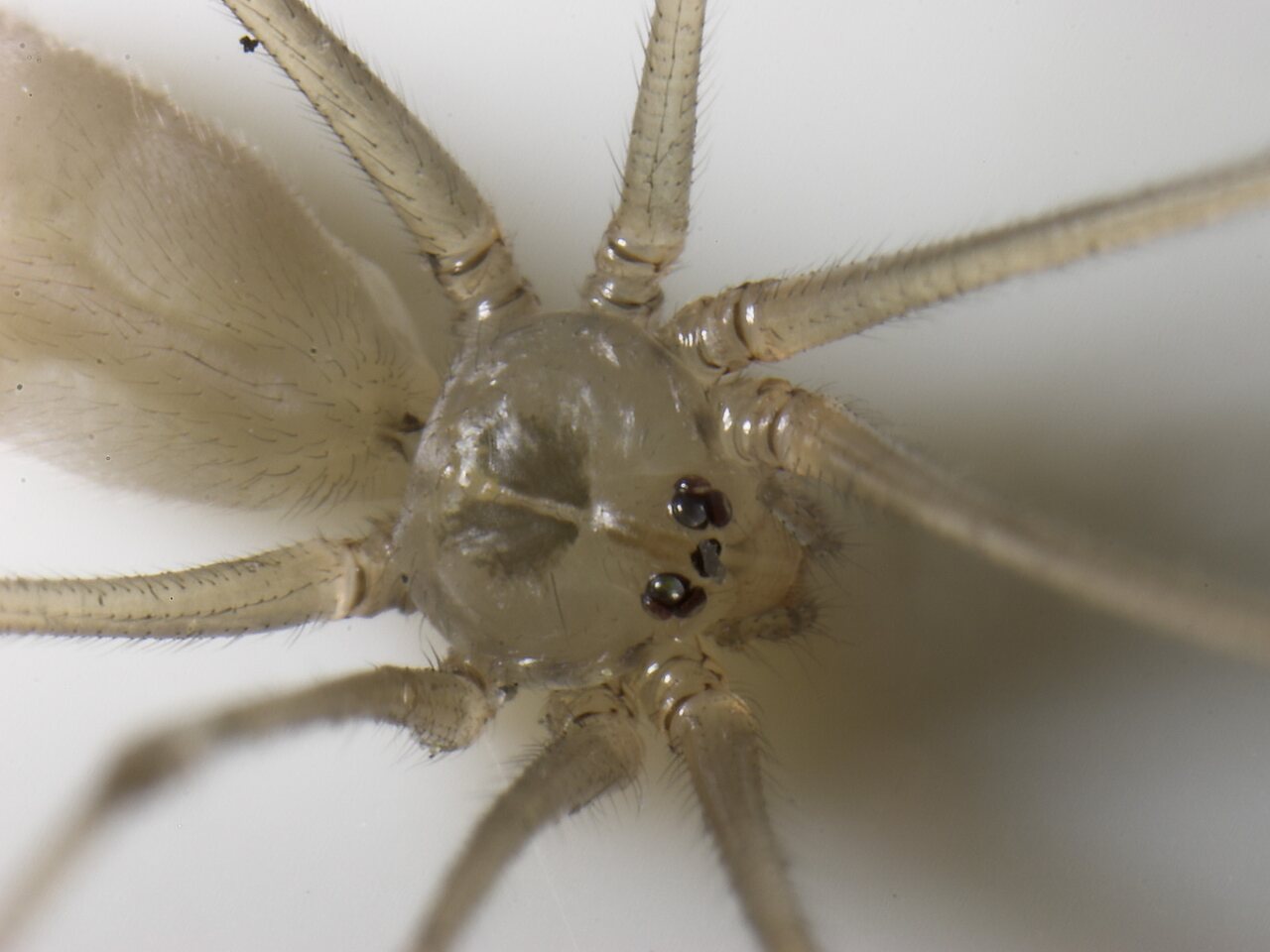
Pholcus phalangioides · ilgakojis virpūnėlis
- Long-Bodied Cellar Spider, Cosmopolitan Cellar Spider
- Große Zitterspinne
- ilgakojis virpūnėlis
- mājas garkājzirneklis
- nasosznik trzęś
- en.wikipedia.org/wiki/Pholcus_phalangioides
- animaldiversity.org/accounts/Pholcus_phalangioides/
- gbif.org/species/2149937
Because of its spread with humans worldwide, there has been some uncertainty about its exact original, native range, although it has been recognized as being likely in the subtropical parts of the Old World, thus with a preference for warmer climates, and recent authorities regards it as only native to Asia. As a synanthropic species, Pholcus phalangioides has largely had its modern geographic distribution determined by the spread of humans around the world. Today, these spiders can be found on every continent in the world.
P. phalangioides are not suited for survival in cold environments which is why they in these regions prefer the warmth of the indoors, specifically inside human dwellings. These spiders have a particular affinity for dimly lit, dark areas that are quiet and calm. They are commonly found in the corners of buildings and people's homes as well as in attics. Populations of Pholcus phalangioides living outdoors can be found in caves and in between rock crevices. The female takes care of the egg deposit and hatched spiderlings.
Male body length: 6‒10 mm (average ~6 mm); female 7‒8 mm. These spiders boast eight very long and thin legs which are covered in thin, grey bristles. On average, their legs are roughly 5‒6 times as long as the spider's body. Body grey-yellow, somewhat transparent. There is a dark, circular spot on the carapace. Knees black. The female's abdomen is cylindrical, the male's has a more regular, oval shape.
‥
0 comments
Add a comment